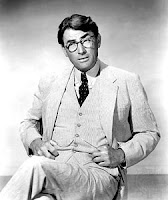soaponarope wrote:As for the challenging the substance of what you said would be a waste of time. ConLaw is complex. Can you sustain a conversation about the political question doctrine, substantive/procedural due process, Marbury v. Madison-judicial review, or if there is indeed an ascertainable "framers intent." How should you determine the framers intent? History and tradition? (If so, then who's history and tradition?) What about an emerging awareness? Surely... blacks, homosexuals, or persons with immutable traits that are part of an inherent suspect class are not protected by the "framers intent." Or how about we discuss the 9th amendment and the penumbra of fundamental rights such as the right to privacy, the right to get married, the right to travel, the right to vote, the right to procreate, etc.. Why did the framers incorporate the 9th amendment in the bill of rights?
This is actually what I wrote: "The framers of the Constitution
attempted to be fair, at least abstractly, and in that sense they were
mildly noble. Subsequently, lawmakers have not exactly been noble in unison. Nobility in practice is what counts, though. The law used a certain way can produce highly unfair and ignoble outcomes."
Like it or not, there are plenty of non-lawyers that are able to discuss this. Your invoking "political question doctrine, substantive/procedural due process, Marbury v. Madison-judicial review" is irrelevant (since most of this was constantly developed for centuries after the framers died); and as to "ascertainable framers' intent," it's obvious you don't need a law degree to discuss this. There is overwhelming historical evidence supporting the notion that the framers did have noble intentions; literally thousands of pages. I could pick one, or two, or ten at random and post them here; but there's no point, because you want to take a simple, correct contention and blow it up into a totally different field of discourse. Why? Because law school has super-satiated you with theory, and you want to burst it all out. Even when it's inappropriate and wrongheaded.
soaponarope wrote:Or how about we discuss what our legal system is really about, i.e. an adversarial system. Unlike the Courts in England, America has an adversarial system. That is, we do not seek truth in American Courts. The defense attorney has a legal duty to defend his client vigorously and get the best outcome for his client within the law and ethical standards set forth by the ABA. There is attorney-client confidentiality for a reason.
This is a common debate in law, i.e. which of these two systems is has more advantages and disadvantages. It's been discussed at length not only in recent history, but during the framing of the Constitution (the framers were well-acquainted of the English legal system). The writings of various framers express their intentions to create the most fair and just society possible, and in that sense I believe their intentions were largely noble (even if you think they might be incorrect).
soaponarope wrote:You can't handle being wrong and you try to cover by firing back with legal jargon that makes you look like a douche. I'll say it once more... just stop.
Wow. Okay, for the last time,
I'm not using legal jargon:
you are. I haven't "fired back" with anything really until now, since you've evaded a substantive discussion.
